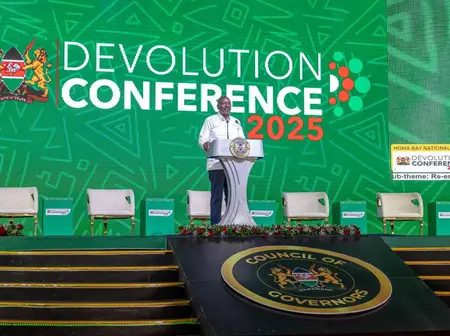“Something is going on in our Legislature that we must call out. There is money being demanded from the Executive (governors and ministers), especially those who appear before our Houses of Parliament. It is not possible that committees of Parliament demand to be bribed, demand to be paid for them to write reports or look the other way for what is happening in either the national or county governments.”
He therefore called on National Assembly Speaker Moses Wetang’ula and Senate Speaker Amason Kingi to take action, while stressing the need for a whole-of-society approach.
Ruto also criticised the Judiciary, pointing to the granting of anticipatory bail as a hindrance to the fight against corruption.
“I want to ask the Judiciary not to be a haven for the corrupt and hide behind judicial decisions. We have innovation that is only available in Kenya, which allows a corrupt person not to be prosecuted,” he stated.
“We have something called anticipatory bail. It is a Kenyan innovation that takes us backwards. Someone who has stolen public funds, going to court and getting anticipatory bail makes it impossible for such a person to be arrested and prosecuted,” Ruto said.
Ruto argued that issuing anticipatory bail undermines the fight against corruption and called for a review of the practice.
According to a past report by the Ethics and Anti-Corruption Commission (EACC), Kenya loses about Ksh 608 billion each year to corruption—equivalent to 7.6 per cent of the country’s GDP.
The same report captured the amounts in Kenyan shillings that counties paid in bribes. Uasin Gishu County recorded the highest average bribe payments in Kenya, with residents paying an average of Ksh25,873.
Baringo came second, with an average of Ksh16,156 in bribes. Other counties with high average bribe amounts included Embu at Ksh12,878, Homa Bay at Ksh12,381, and Bomet at Ksh11,650—underscoring the widespread nature of corruption across various regions.

Leave a Reply